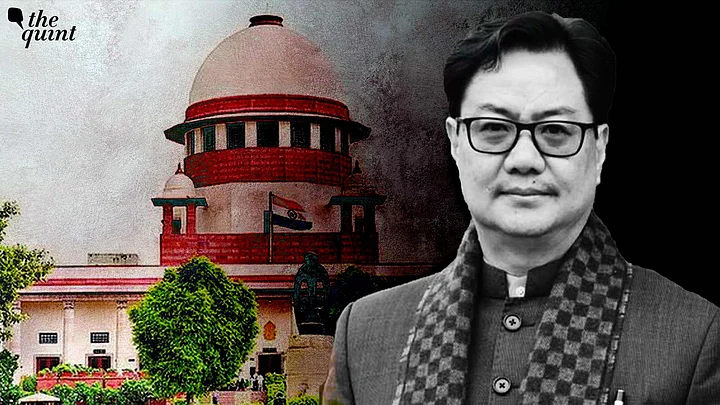Former Prime Minister Manmohan Singh once said that "judiciary must be encouraged to find ways and means to regulate its own affairs - consistent with the spirit of the Constitution."
Within a very short span of time, things appear to have changed drastically, and in sharp contrast to Indian constitutional values.
If we look at the previous pages of our recent history, earlier too an effort was made to review the constitution when Atal Bihari Vajpayee was heading the Government. But at that time the public atmosphere was not flowing in favour of reviewing the Constitution. In the last two decades, more specifically in last eight years untiring efforts have been made to convince people at large about alleged failures of our established constitutional values.
Constitutional Values: Deep-Rooted & Adequately Protected by the Judiciary
Serious injuries have been caused to such values and the institutions enriching these values. However, the values embedded in our Constitution are not only deep-rooted but also adequately protected.
Our judiciary has proven itself as the most powerful custodian of the constitution. By various judgments, the judiciary has protected our constitutional democratic system and ensured it continues to function smoothly.
The concept of the basic structure of our constitution, as brought on by the basic structure doctrine, provides a strong shield to the constitution from any effort to weaken it .
The efficacy of judiciary and the concepts developed by it to protect our values, including secularism and social Justice are treated as a hurdle by majoritarian political powers in implementing their agenda.
Hence, from various corners and through various means, judiciary has been targeted for the failures of Executive and to some extent the failures of Legislature too.
Targeting the Judiciary
Last week, Vice President of India Jagdeep Dhankhar, while addressing a conference of the Presiding Officers of Legislatures at Jaipur criticised the method of appointment of judges and brutally attacked the concept of Basic Structure.
Surprisingly enough, several other constitutional functionaries present at the conference also sang the same tune, going on to say that judiciary is the big hurdle in introducing laws necessary for development of nation and further in implementing development programmes. Interestingly neither the Vice President nor any other participant of the conference pointed out any such laws or programmes.
A bird's eye view of various judgments of the Supreme Court and the High Courts of this country indicates that in last decade the judiciary has not nixed any people-oriented law enacted in last eight years by the Parliament – except the law relating to the appointment of Judges (NJAC) and minor provisions of a few legislation which were apparently in conflict with the constitution.
Besides, the Judiciary has a constitutional right to review the law, if it is in conflict with our fundamental rights, or if it is drafted without competence.
Most recently, Union Law Minister Kiren Rijiju wrote a letter to the Chief Justice of India to include government representatives in the collegium (that recommends appointment of Judges). I fail to understand why this suggestion has been made despite knowing well enough that the system for appointment of Judges is given by a judgment and the Chief Justice in his administrative capacity cannot do anything in that regard .
An explanation given by the Law Ministry that this suggestion is in continuity of the apex courts judgment which favour a fresh memorandum of procedure (MOP) is also not tenable in view of the fact that an MOP cannot be made in piecemeal and that too in such a casual manner.
If the Law Minister was sincerely pressing for a complete new MOP then he should have made serious efforts by first disclosing the government's interpretation and understanding of the the appointments process. Especially since the NJAC (which sought to enable government involvement) has already been declared unconstitutional.
Collegium System Not Perfect, But...
No doubt, the collegium system has its follies and those must be addressed, but for that serious deliberations at various levels are necessary. Such an important task cannot be accomplished in casual manner .
The words of speakers at Jaipur conference and the letter by the Law Minister only suggest the desire of the government for control on the mode of appointments of judges, and ultimately to check independence of judiciary.
(Justice Govind Mathur is a former Chief Justice of the Allahabad High Court. This is an opinion piece and the views expressed are the author’s own. The Quint neither endorses nor is responsible for them.)
